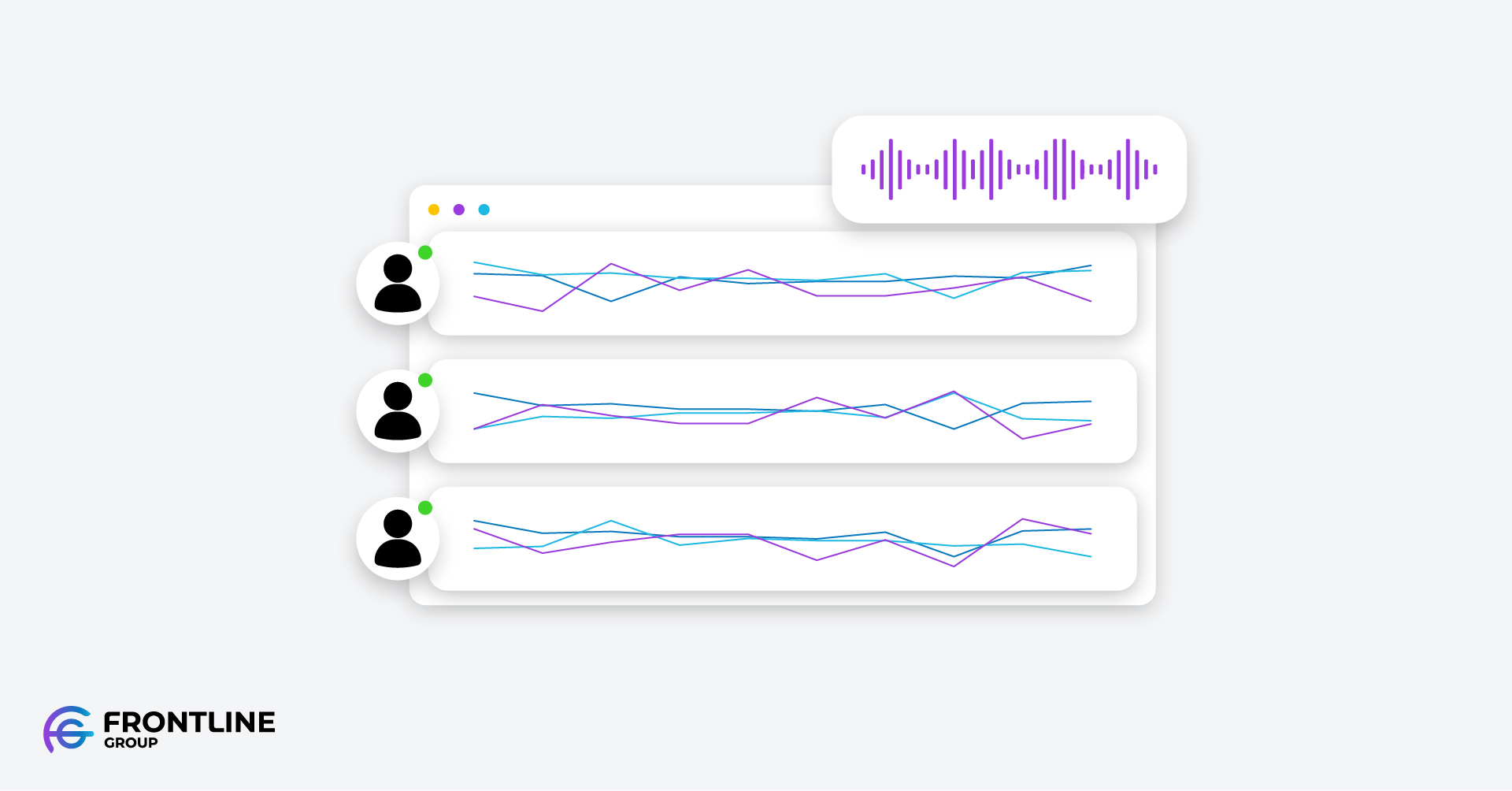
In the fast-paced world of contact centers, agents are the face of the company and play a critical role in shaping the customer experience. Every interaction, whether it’s resolving a technical issue or answering a simple inquiry, contributes to how customers perceive the brand. The ability of agents to deliver efficient, empathetic, and accurate service directly impacts customer satisfaction and brand loyalty.
To ensure agents consistently meet these high expectations, comprehensive training, and ongoing development are essential. Well-trained agents not only perform better but also contribute to operational efficiency, reduced turnover, and higher overall morale. Let’s explore the importance of investing in agent training and development and how it leads to the creation of high-performing teams that drive exceptional customer service.
Why Training and Development Matter in Contact Centers
In contact centers, agents are often the first and most frequent point of contact for customers, making them a critical component of the customer experience. The quality of interactions customers have with these agents can determine whether they remain loyal to the brand or take their business elsewhere. This is why training and development play such a vital role in ensuring agents are well-prepared to deliver excellent service. Let’s explore some of the key reasons why investing in training is so important.
The Role of Agents in Customer Satisfaction
Contact center agents are the face of the brand in many customer interactions. A knowledgeable, well-trained agent can resolve issues quickly, answer questions confidently, and provide personalized service that meets or exceeds customer expectations. These positive experiences not only satisfy customers but also enhance their perception of the brand, increasing the likelihood of repeat business and fostering loyalty. On the other hand, agents who are not well-trained can struggle to resolve issues efficiently, leading to frustration and dissatisfaction, which can damage the brand’s reputation.
Employee Retention and Morale
Investing in training and development also positively impacts agent retention and morale. When agents feel empowered through comprehensive training, they are more confident in their roles and more engaged in their work. This leads to higher job satisfaction and reduced turnover, which can be a significant challenge in the contact center industry. Continuous development opportunities, such as upskilling and career advancement programs, also show agents that their growth is valued, further improving retention rates.
Meeting Evolving Customer Expectations
Customer expectations are constantly changing, and businesses need to adapt to stay competitive. Whether it’s embracing new technologies or keeping up with industry trends, agents must be able to meet these evolving demands. Regular training ensures that agents are not only familiar with the latest tools and processes but also equipped to handle increasingly complex customer interactions. A well-trained workforce is agile, able to pivot quickly, and adapt to the needs of today’s customers.
By investing in agent training and development, contact centers can ensure their teams are equipped to provide exceptional service, driving both customer satisfaction and long-term business success.
Core Components of Effective Contact Center Training Programs
A well-structured training program is key to equipping agents with the skills and knowledge they need to excel in their roles. Training programs must cover a range of areas, from product knowledge to soft skills and technological proficiency, to ensure agents are prepared for the diverse challenges they will face.
Product and Service Knowledge
At the heart of any contact center operation is the need for agents to be knowledgeable about the business’s products and services. Customers expect quick and accurate answers to their inquiries, and agents must have a deep understanding of what the company offers to meet those expectations. Comprehensive training on product features, benefits, and common issues allows agents to respond confidently and provide accurate solutions. Without this foundation, agents may struggle to assist customers effectively, leading to longer resolution times and reduced customer satisfaction.
Soft Skills Training
While technical knowledge is critical, soft skills are just as important in customer service interactions. Training in active listening, empathy, conflict resolution, and effective communication can make a significant difference in how customers perceive their experience. An agent who can listen attentively, show understanding, and respond with kindness can de-escalate tense situations and leave customers feeling valued. Soft skills training helps agents maintain a calm and professional demeanor, even in high-pressure situations, leading to more positive interactions and greater customer loyalty.
Technology and Tools Training
Contact center agents rely on a variety of tools to perform their jobs efficiently, from customer relationship management (CRM) systems to AI-powered chatbots and analytics platforms. Ensuring agents are proficient in using these technologies is crucial for streamlining processes and improving productivity. Technology training should focus not only on the technical aspects of the tools but also on how they can be leveraged to enhance customer service. Agents need to understand how to access customer data quickly, manage workflows, and use automation effectively to resolve issues faster and more accurately.
Performance Metrics
An effective training program should also include a focus on performance metrics that are key to evaluating agent success. Metrics such as First Call Resolution (FCR), customer satisfaction (CSAT), and average handle time (AHT) are critical indicators of how well agents are performing. By incorporating these metrics into training, agents can better understand how their actions impact both customer experience and operational efficiency. Setting clear expectations around these metrics encourages agents to strive for continuous improvement and align their efforts with broader business goals.
By incorporating these core components, businesses can ensure that their contact center training programs are comprehensive, equipping agents with the skills they need to deliver high-quality service while optimizing operational performance.
Strategies for Ongoing Development and Continuous Improvement
While initial training is crucial, ongoing development and continuous improvement are essential for maintaining high-performing teams in contact centers. As the business landscape evolves and customer expectations shift, agents need regular opportunities to refresh their skills, adapt to new technologies, and stay aligned with company goals.
Coaching and Feedback
One-on-one coaching and real-time feedback play a significant role in ongoing development. Coaching allows agents to receive personalized guidance on how to improve their performance, address any weaknesses, and enhance their strengths. Regular feedback helps agents stay aware of how their actions align with company goals and customer expectations. Providing constructive feedback in a supportive environment encourages growth and motivates agents to consistently improve.
Supervisors can also use performance data to identify patterns and trends, allowing them to focus coaching sessions on specific areas where an agent might be struggling. This targeted approach ensures that development efforts are effective and personalized to each agent’s needs.
Mentorship Programs
Establishing a mentorship program within the contact center can be an effective way to support newer or less experienced agents. Pairing them with seasoned agents allows for knowledge transfer and provides a support system as they navigate the challenges of customer service. Mentorship helps build confidence, fosters teamwork, and encourages a culture of learning. It also gives newer agents the opportunity to ask questions and learn best practices from those who have been successful in the role.
For businesses, mentorship programs can lead to quicker onboarding and a smoother transition for new hires, resulting in better performance and retention.
Regular Training Refreshers
Training shouldn’t end after the initial onboarding phase. Regular refresher courses help keep agents sharp and up-to-date on the latest processes, technologies, and customer service strategies. These refresher sessions can be focused on new product launches, changes in company policy, or updates to customer service protocols.
Scheduling regular training sessions also reinforces core skills, ensuring that agents remain knowledgeable and confident in their roles. This ongoing investment in training helps prevent skill stagnation and keeps agents engaged with their work.
How Frontline Group Builds High-Performing Teams Through Training and Development
At Frontline Group, we recognize that a well-trained and continuously developed team is the backbone of any successful contact center. By investing in comprehensive training programs, personalized development, and innovative tools, we ensure that our agents are equipped to deliver outstanding customer service while consistently improving their performance.
Tailored Training Programs
We understand that no two businesses are the same, which is why we offer tailored training programs designed to meet the specific needs of each client. Our training covers not only the essential technical skills required for the job but also soft skills like empathy, active listening, and conflict resolution. By aligning our training with the client’s brand values, we ensure that agents represent the brand effectively, delivering a consistent and positive customer experience.
Our programs also focus on industry-specific knowledge, enabling agents to handle inquiries and resolve issues with accuracy and confidence. Whether we’re training agents to support healthcare providers or eCommerce businesses, we ensure they are well-versed in the nuances of the industry they serve.
Frontline Connect: Enhancing Agent Performance with Real-Time Support
Our proprietary platform, Frontline Connect, plays a key role in streamlining the training and development process. Frontline Connect provides agents with real-time access to customer data and decision-making tools, enabling them to deliver personalized and effective service during each call. With this platform, agents can continuously learn on the job, receiving performance insights and support as they engage with customers.
Build a High-Performing Team With Frontline Group
Training and development are fundamental to building high-performing teams in contact centers. Well-trained agents are not only more efficient in resolving customer inquiries, but they also deliver a level of service that fosters customer satisfaction and brand loyalty. By investing in comprehensive training programs, continuous development, and real-time support, businesses can ensure that their contact center teams are prepared to meet evolving customer expectations and drive positive outcomes.
At Frontline Group, we prioritize the development of our agents through tailored training programs, innovative tools like Frontline Connect, and a commitment to continuous learning. Our approach helps agents stay sharp, engaged, and aligned with the needs of our clients.
Contact us today and let us help you create a contact center that excels in today’s competitive landscape.

Every business is different, that’s why all of our solutions are custom built for you. Let’s chat and see how we can help improve your contact center.

